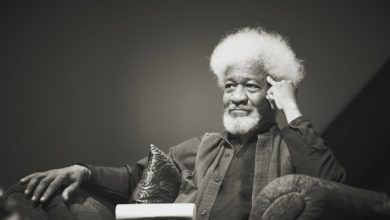A Legal Showdown Between the UK, Mauritius, and the Displaced Chagossians
Authored by : Bryan Miller

The Chagos Islands Legal Battle: A Fight for Justice, Identity, and Sovereignty
For decades, the Chagos Islanders have been caught in a geopolitical and legal limbo, exiled from their homeland and forced to watch from afar as global powers dictated their fate. Now, two courageous Chagossian women have taken the UK government to court, challenging its unilateral decision to negotiate the transfer of the Chagos Archipelago to Mauritius without consulting those who have the most at stake—the Chagossians themselves.
This lawsuit is not just about ownership of a group of islands; it is a landmark case on self-determination, indigenous rights, and colonial accountability—themes that have long defined legal battles over territories once controlled by European powers.
The Exile That Never Ended
In the 1960s and 1970s, the UK forcibly removed the entire Chagossian population from their homeland to make way for a joint UK-US military base on Diego Garcia, the largest island in the archipelago. This act of dispossession left thousands displaced, stripped of their ancestral home, and forced to live in poverty in Mauritius and the Seychelles.
Despite multiple legal challenges, the Chagossians have never been allowed to return. In 2019, the International Court of Justice (ICJ) ruled that the UK’s administration of the Chagos Islands was unlawful and that sovereignty should be transferred to Mauritius. The United Nations General Assembly overwhelmingly backed this ruling, yet the UK has refused to comply, citing defense and security concerns.
Now, the UK and Mauritius are in negotiations to finalize the sovereignty transfer—but once again, the Chagossians have been excluded from the conversation about their own homeland.
The Legal Challenge: Who Decides Their Future?
At the heart of this legal challenge is the principle of self-determination—a fundamental right enshrined in international law. The two Chagossian plaintiffs argue that any decision about the islands’ future must include the voices of the people forcibly removed from them. Their case rests on key legal arguments:
-
Violation of the Right to Self-Determination
- The UN Charter and various international treaties affirm that people have the right to determine their own political future. The UK’s negotiations with Mauritius ignore this principle by making decisions without Chagossian input.
- Precedent: Similar cases, such as the independence movements in Western Sahara and New Caledonia, have reinforced that indigenous populations must be consulted in territorial disputes.
-
Breach of Procedural Fairness and Natural Justice
- In public law, the principle of procedural fairness dictates that those affected by a governmental decision must be given the opportunity to be heard.
- The UK government’s failure to engage with Chagossians before negotiating sovereignty transfer may constitute a breach of natural justice.
-
Colonial Legacy and Reparations
- This case could force a wider conversation on reparations for colonial injustices. If the UK is found liable for excluding the Chagossians from discussions that directly affect their future, it may open doors for claims of compensation or restoration of citizenship rights.
-
Human Rights Violations
- The forced displacement of the Chagossians has been described by human rights organizations as an ongoing crime against humanity.
- Legal scholars argue that the continued exclusion of Chagossians from decision-making violates Article 15 of the Universal Declaration of Human Rights, which guarantees the right to nationality.
What Happens Next?
If the UK High Court rules in favor of the Chagossian plaintiffs, it could have several consequences:
- Mauritius and the UK may be forced to renegotiate sovereignty with direct Chagossian participation—giving them a seat at the table for the first time.
- The case could strengthen indigenous land claims worldwide, setting a legal precedent that former colonial powers cannot unilaterally determine the fate of displaced communities.
- If the court finds a legal duty for compensation, the UK may have to address reparations—not just for Chagossians, but for other colonial-era injustices.




